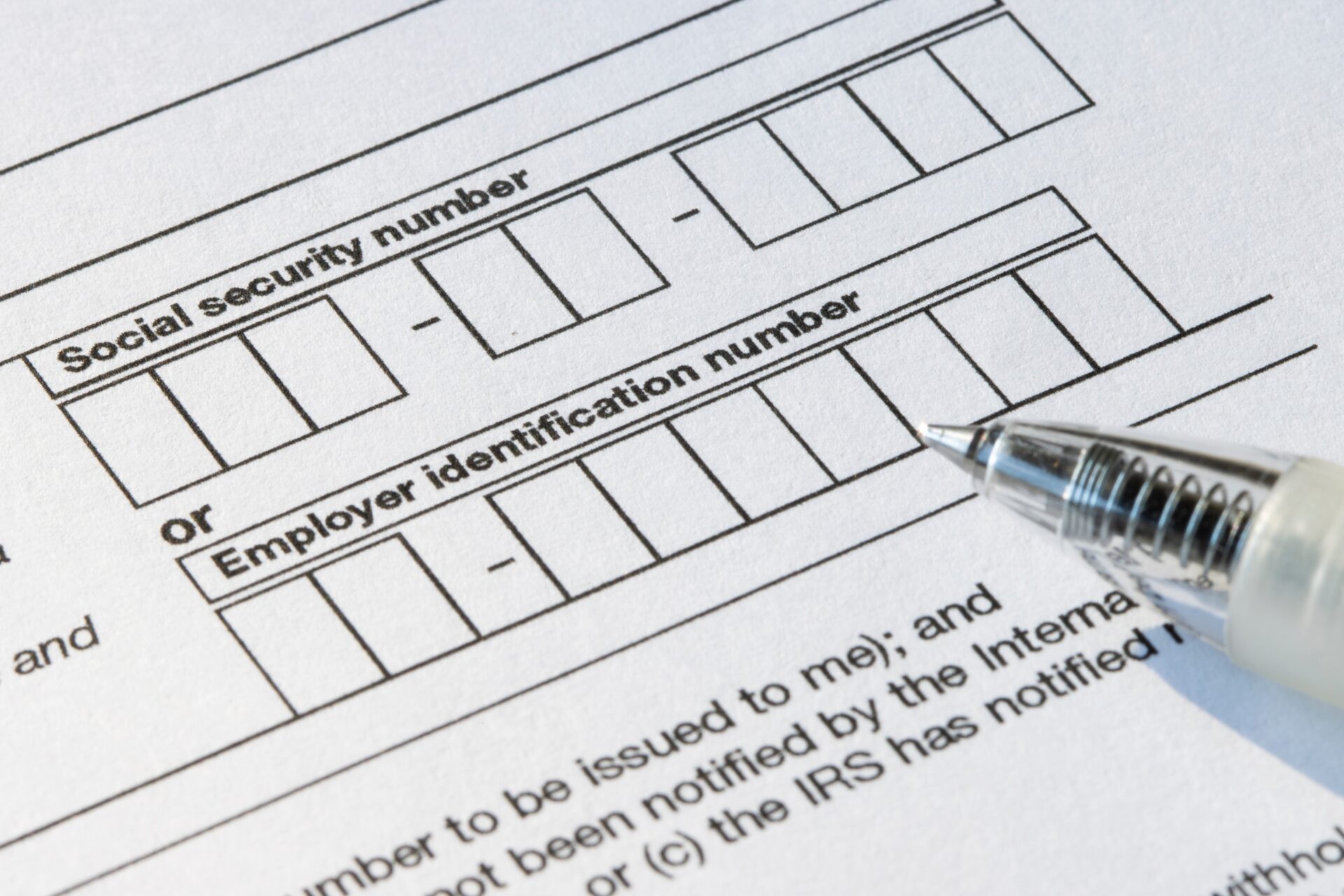Starting a business can come with countless decisions, but one of the most important steps is often overlooked, opening a dedicated business bank account. Whether you are a freelancer, a small business owner or managing a growing company, having separate accounts is not only for organization, but it’s also about protecting your finances and setting your business up for success.
A business bank account is designed specifically for managing your company’s income and expenses. It keeps your personal and business finances separate, makes accounting and tax filing easier and establishes creditability with customers, vendors and lenders. In this article, we will walk you through exactly how to open a business bank account and highlight the major benefits it can bring, from streamlining cash flow to building your business credit.
Why Do You Need a Business Bank Statement?
Opening a business bank account isn’t just a formality, it’s a smart financial move that helps your company run more efficiently and professionally. Here’s why it matters:
- Keeps Finances Separate: mixing personal and business money creates headaches during tax season and can even expose you to legal risk. A dedicated account draws a clear line between the two.
- Boosts Professionalism and Credibility: Clients and vendors take your business more seriously when payments and checks come from a business account rather than a personal account.
- Simplifies Bookkeeping and Taxes: with all income and expenses flowing through one account, tracking cash flow and preparing accurate tax returns becomes much easier.
- Opens Doors to Credit and Financing: Most banks require an established business account before granting credits cards, loans or lines of credit. Having a business bank account builds the foundation for business credit.
Types of Business Bank Accounts
Not all business accounts serve the same purpose. Choosing the right type of account depends on how you plan to manage your money. The main options include:
- Business Checking Account: The most common choice, designed for everyday transactions like paying bills, managing payroll and receiving customer payments. It offers flexibility, easy access and often includes online banking tools
- Business Savings Account: Ideal for setting aside money for taxes, emergencies, or future investments. Many savings accounts earn interest, helping your funds grow over time.
- Merchant Services Account: if your business accepts credit or debit card payments, you’ll likely need a merchant account. It allows you to process transactions securely and get funds deposited directly into your business checking account.
- Specialized Accounts: Some banks offer tailored accounts for industries like nonprofits, startups, or high-volume businesses. These may include lower fees, integrated payment systems, or additional financial tools.
What You Need to Open a Business Bank Account
Before heading to the bank (or applying online), it’s important to gather the required documents. While exact requirements vary by bank and business type, most financial institutions will ask for the following:
- Employer Identification Number (EIN) or Social Security Number (SSN): An EIN is typically required for corporations, LLCs and partnerships. Sole proprietors may be able to use their SSNs instead.
- Business Licenses or Permit: Proof of your company’s legal structure, such as Articles of Incorporation/Organization or a Partnership Agreement.
- Ownership Agreements: if your business has multiple owners, banks may require an Operating Agreement or other ownership records that clarify who has authority over the account.
- Personal Identification: A government-issued ID such as a driver’s license or passport for each owner or signer on the account.
- Initial Deposit: Some banks require a minimum opening deposit, which can range from $25 to several hundred dollars depending on the account.
Step-by-Step: How to Open a Business Bank Account
Opening a business bank account is a straightforward process, but preparation is key. Follow these steps to set up your account smoothly:
- Research and Choose the Right Bank: Compare banks based on fees, account features, digital banking options and customer service. Consider whether you prefer a local credit union, regional bank or national institution.
- Decide Which Type of Account You Need: Most businesses start with a checking account, but you may also want a savings account for reserves or a merchant services account to process payments.
- Gather Required Documentation: Make sure you have your EIN or SSN, business formation documents, licenses, personal IDs, and ownership agreements. Having everything ready will speed up the application process.
- Apply Online or In Person: Many banks now allow you to complete the application digitally. If you prefer face-to-face support, you can visit a local branch.
- Fund the Account: Deposit the minimum opening balance required. This is typically modest but check with your bank to confirm.
- Start Using the Account: Once approved, you can order checks, set up online banking, connect accounting software, and begin managing transactions.
Benefits of Having a Business Bank Account
A business bank account does far more than simply separate your personal and business finances it lays the groundwork for long-term growth and financial stability. By maintaining a dedicated account, you begin building a business credit profile, which can be crucial when applying for loans, credit cards, or lines of credit. It also simplifies bookkeeping and payroll, making it easier to track expenses, manage cash flow, and keep accurate records for tax season. Beyond organization, a business account helps protect your personal assets by preventing co-mingling of funds, an especially important safeguard for LLCs and corporations. Many banks also require an established business account before granting access to financial products such as loans or merchant services, giving you more opportunities to fund and expand your company. Finally, paying vendors, employees, and suppliers from a business account enhances your professional image and credibility, showing clients and partners that your company is legitimate and well-managed.
Common Mistakes to Avoid
While opening a business bank account is a smart move, many entrepreneurs overlook key details that can cause problems down the road. One of the biggest mistakes is using a personal account for business transactions, which not only complicates bookkeeping but can also blur liability protections. Another common misstep is failing to compare banks and account types what looks convenient at first may come with high fees, limited services, or strict balance requirements that hurt your cash flow. Business owners also sometimes overlook the fine print, missing hidden charges for things like wire transfers or overdrafts. Finally, neglecting to keep proper records or not maintaining the account in good standing can undermine your credibility with banks and lenders, making it harder to access financing in the future. Avoiding these pitfalls ensures that your business account truly supports your operations rather than holding you back.
Tips for Choosing the Right Business Bank Account
Selecting the right bank account can make a significant difference in how smoothly your business operates. Start by comparing fees and pricing structures monthly maintenance fees, transaction limits, and hidden charges can quickly add up if you’re not careful. Look for banks that offer strong digital banking features, such as mobile deposits, expense tracking, and seamless integrations with accounting software, since these tools save time and reduce errors. It’s also wise to evaluate the value-added services a bank provides, like merchant processing, business credit options, or cash management tools that can support your growth. Depending on your needs, you may want to weigh the benefits of a local community bank or credit union, which can offer personalized service, versus larger national banks, which may provide more robust resources and nationwide access. Taking the time to align your banking choice with your business goals ensures you’ll have a financial partner that grows with you.
Key Takeaways
Opening a business bank account is one of the smartest steps you can take to build a strong financial foundation for your company. It not only keeps your personal and business finances separate but also simplifies accounting, strengthens your credibility, and unlocks opportunities for credit and growth. By choosing the right account, avoiding common mistakes, and leveraging the benefits, you give your business the tools it needs to thrive. Don’t wait until tax season or a financing need forces the issue set up your business bank account today and position your company for long-term success.




